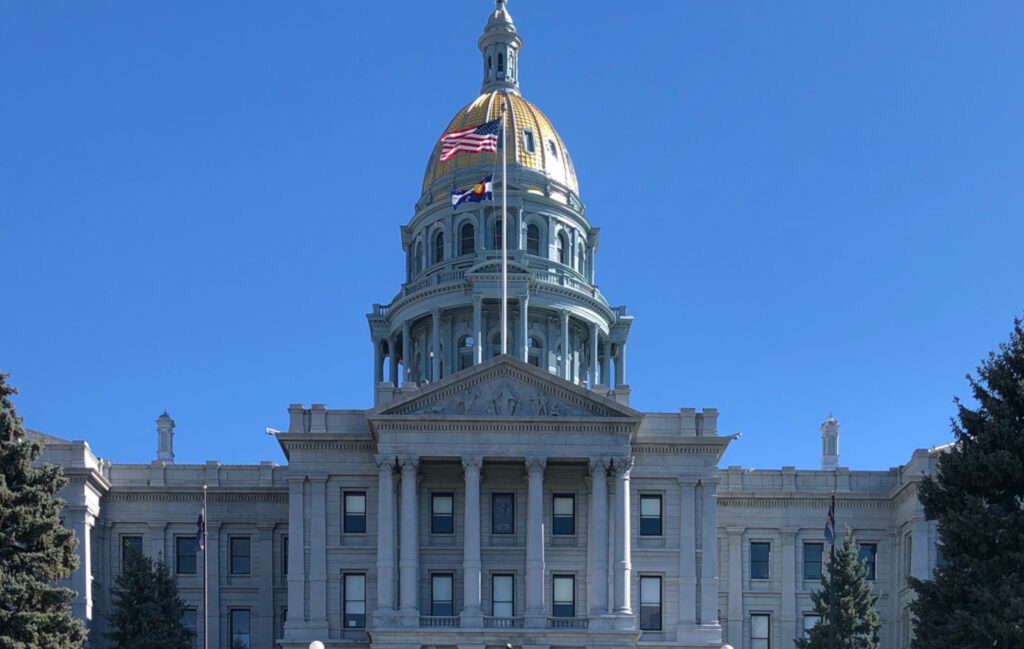By Jeffrey A. Roberts
CFOIC Executive Director
Writing that “all legitimate requests for public transparency” under the Colorado Open Records Act “should be treated equally under the law,” Gov. Jared Polis on Thursday vetoed a bill that gave government entities more time to respond to requests made by the public and businesses but kept deadlines the same for journalists.
The governor criticized Senate Bill 25-077 for creating “three classes of open records requests that are subject to different timelines: those made by mass media, those made for pecuniary gain, and all other requests.”

“Essentially, under this bill, speed to access public information is determined by who you are,” Polis wrote in a veto message. “A newsperson, a member of the public, and a person seeking financial gain may all request the same information and, under this bill, get access to that information on different timelines. To ensure fairness and confidence in public transparency, all legitimate requests for public transparency under CORA should be treated equally under the law, without preference for some requestors over others.”
“It would certainly be convenient for the Executive Branch to agree to weaken CORA, but as a representative for the people of Colorado, I support more, not less, openness and transparency,” the governor added.
The Colorado Freedom of Information Coalition had asked Polis to veto the measure because it “creates additional unnecessary barriers for people seeking to gain a better understanding of state and local government activities in Colorado, which is the very purpose of CORA.”
SB 25-077 gave records custodians five working days, rather than three, to fulfill CORA requests made by the public and an additional 10 working days, rather than seven, if “extenuating circumstances” exist. The bill exempted journalists, as defined by Colorado’s press shield law, from the lengthened timelines, but governments could have taken up to 30 working days to fulfill requests made “for the direct solicitation of business for pecuniary gain” and charge a “reasonable cost” — rather than the maximum hourly rate in CORA — to do so.
The bill’s sponsors, Sen. Cathy Kipp, D-Fort Collins, and Rep. Matt Soper, R-Delta, have indicated they will seek to override the veto, which requires a two-thirds vote in each chamber. The bill passed the Senate 27-6 and the House 45-19.
Polis in his letter lauded certain aspects of SB 25-077, including requiring records custodians to publicly post information about their CORA and records retention policies and allowing requesters to ask for a breakdown of how fees are applied.
But government employees, he wrote, should not be put “in the perilous position of determining whether a requester is a legitimate ‘mass medium’ or ‘newsperson’ (e.g. a member of the media) or whether they are making a request for pecuniary — or financial — gain. The bill leaves the custodian with far too much power to define who is and is not a member of the media, and what is and isn’t news.”
“I am concerned about the inconsistent application of these new provisions, given the novel, subjective determinations required. Involving the government with prioritizing or determining the category of requesters could suggest bias or favoritism,” Polis added.
CFOIC’s April 7 letter to the governor focused on the extended response deadlines while the legislature has been unwilling to reexamine CORA’s fee structure, which can make obtaining public records unaffordable for some Coloradans.
We wrote: “By extending CORA response times to three weeks if governments claim that ‘extenuating circumstances’ apply — which happens frequently — SB 25-077 essentially gives records custodians an excuse to further delay providing public records within a reasonable period of time. We know from the freedom-of-information hotline we’ve run for the past 12 years that government entities often miss the statutory deadlines, and there’s not much that Coloradans can do about it. Colorado’s Court of Appeals recently ruled that the same language in the Judicial Department’s CORA-like policy is not enforceable even when deadlines are missed by months.”
CORA’s maximum hourly research-and-retrieval rate rose 23 percent last July 1 to $41.37/hour (after an initial free hour). CFOIC has counted more than 1,500 cities, towns, counties, state agencies, special districts, school districts and public universities that have raised their rates since then.
Follow the Colorado Freedom of Information Coalition on X or BlueSky. Like CFOIC’s Facebook page. Do you appreciate the information and resources provided by CFOIC? Please consider making a tax-deductible donation.



